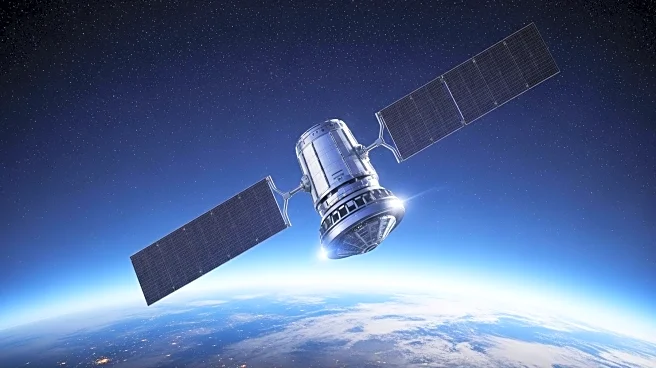What is the story about?
What's Happening?
SpaceX successfully launched a Falcon 9 rocket carrying 28 Starlink satellites from Vandenberg Space Force Base in California on September 28, 2025. The launch occurred at 10:04 p.m. EDT and marked the 124th Falcon 9 mission of the year. The rocket's first stage, known as Booster 1063, completed its 28th flight and landed on the droneship 'Of Course I Still Love You' in the Pacific Ocean. This mission added to SpaceX's growing Starlink megaconstellation, which now comprises over 8,500 active satellites. The deployment of these satellites aims to enhance global broadband internet coverage, particularly in underserved and remote areas.
Why It's Important?
The expansion of the Starlink satellite network is significant for global internet accessibility, particularly in regions lacking reliable broadband infrastructure. By increasing the number of satellites in orbit, SpaceX aims to provide high-speed internet to remote and rural areas, potentially bridging the digital divide. This development could have substantial economic and educational impacts, enabling more people to access online resources and services. Additionally, the successful reuse of the Falcon 9's first stage highlights SpaceX's commitment to cost-effective and sustainable space operations, which could influence future space exploration and commercial satellite deployment strategies.
What's Next?
SpaceX is expected to continue its aggressive launch schedule to further expand the Starlink constellation. As more satellites are deployed, the company will likely enhance its service offerings and improve internet speeds and reliability. Regulatory bodies and governments may also engage with SpaceX to address concerns related to space debris and orbital congestion. Furthermore, competitors in the satellite internet industry may accelerate their own deployment plans to keep pace with SpaceX's advancements.
Beyond the Headlines
The rapid expansion of satellite constellations raises questions about space traffic management and the long-term sustainability of low Earth orbit. As more companies enter the satellite internet market, international cooperation and regulation will be crucial to prevent collisions and ensure safe operations. Additionally, the environmental impact of increased rocket launches and satellite production may become a topic of discussion among policymakers and environmental groups.















